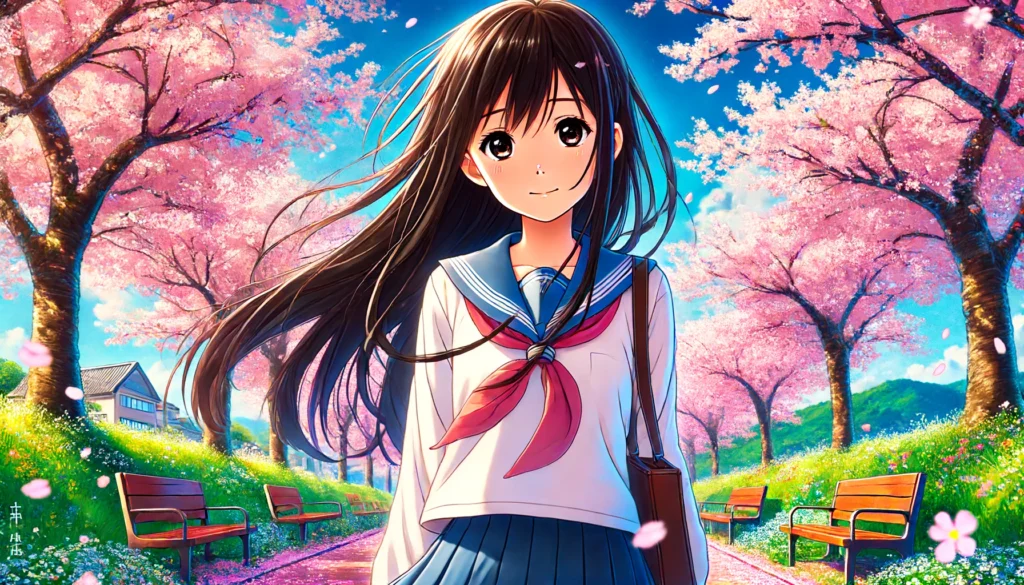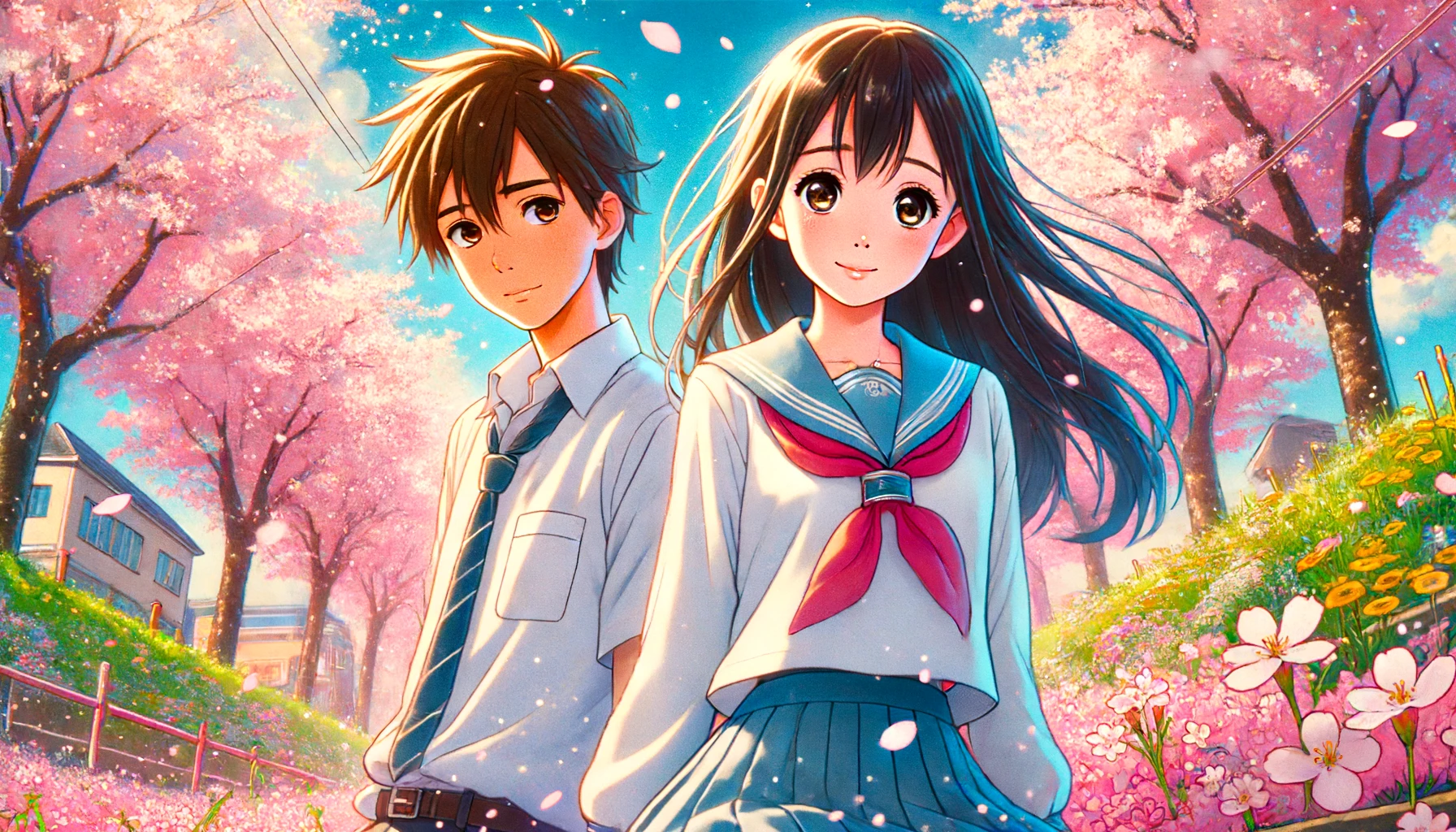
Table of Contents
Anime has the unique ability to explore human emotions and relationships in ways that often leave lasting impressions on viewers. One such profound exploration is showcased in the 2018 anime film “I Want to Eat Your Pancreas” (Kimi no Suizou wo Tabetai). Directed by Shinichirou Ushijima and based on Yoru Sumino’s novel, this film takes us on an emotional journey that delves deep into themes of life, death, and the essence of human connections. This review aims to provide a comprehensive analysis of the film, highlighting its story, characters, animation, music, and the impact it has had on its audience.
Storyline and Plot
“I Want to Eat Your Pancreas” follows the story of an introverted high school student, Haruki Shiga, and his unexpected relationship with his outgoing classmate, Sakura Yamauchi. The film begins with Haruki discovering Sakura’s diary in a hospital waiting room, revealing her terminal pancreatic illness. Unlike typical narratives about illness and mortality, this film eschews melodrama in favor of a more nuanced and heartfelt portrayal of Sakura’s desire to live life to the fullest despite her impending death.
The narrative structure is engaging, employing flashbacks and a non-linear timeline that keeps the audience intrigued. As Haruki and Sakura grow closer, the story explores their contrasting personalities and how they influence each other’s perspectives on life. Sakura’s cheerful demeanor and zest for life gradually break through Haruki’s shell, leading to a transformation that is both poignant and uplifting.
Characters and Development
The characters in “I Want to Eat Your Pancreas” are meticulously crafted, each adding depth and dimension to the story. Haruki Shiga, voiced by Mahiro Takasugi, is initially portrayed as a withdrawn and apathetic individual. His journey throughout the film is marked by significant personal growth, driven largely by his interactions with Sakura.
Sakura Yamauchi, voiced by Lynn, is the heart and soul of the movie. Her character embodies a rare blend of strength and vulnerability, facing her illness with a smile and an unyielding desire to experience the joys of everyday life. Her relationship with Haruki is central to the narrative, offering a touching exploration of how people can profoundly impact each other’s lives.
The supporting characters, including Kyoko, Sakura’s best friend, and Haruki’s classmates, add layers to the story, reflecting various perspectives on life and death. Each character’s interactions with Haruki and Sakura help to flesh out the main themes of the film, contributing to a rich and emotionally resonant tapestry.
Animation and Visual Style
Animation is a critical aspect of any anime film, and “I Want to Eat Your Pancreas” does not disappoint. The film is produced by Studio VOLN, known for their work on series such as “Ushio and Tora.” The animation quality is superb, with detailed character designs and beautifully rendered backgrounds that capture the essence of the story’s emotional landscape.
The visual style of the film is both realistic and artistically expressive, with a particular emphasis on the changing seasons and the passage of time. The use of color is particularly noteworthy, with warm, vibrant hues used to depict moments of joy and life, contrasted with cooler, more subdued tones during scenes of introspection and sadness. This visual juxtaposition enhances the emotional impact of the narrative, drawing viewers into the characters’ experiences.
Music and Sound Design
The soundtrack of “I Want to Eat Your Pancreas,” composed by Hiroko Sebu, is integral to the film’s emotional resonance. The music perfectly complements the narrative, enhancing the mood of each scene with a delicate balance of piano melodies and orchestral arrangements. The theme song, “Fanfare” by sumika, is both uplifting and melancholic, encapsulating the film’s central themes of joy and sorrow.
Sound design also plays a crucial role in immersing the audience in the story. From the bustling sounds of school life to the quiet moments of contemplation, the auditory elements are carefully crafted to support the film’s emotional beats. The voice acting is exceptional, with Lynn and Mahiro Takasugi delivering powerful performances that bring their characters to life with authenticity and depth.
Themes and Symbolism
“I Want to Eat Your Pancreas” delves into several profound themes, primarily focusing on life, death, and the connections we form with others. The title itself is a metaphor that reflects Sakura’s wish to share her life with someone else, even in the face of death. This metaphor is rooted in an ancient belief that consuming the pancreas of another would allow one to live longer, symbolizing a deep, almost spiritual bond between the characters.
The film also explores the concept of living in the moment and cherishing the present. Sakura’s approach to her illness is not one of despair but of embracing every experience, no matter how small. This outlook influences Haruki, encouraging him to open up and engage with the world around him. Their relationship serves as a poignant reminder of the impact that genuine human connections can have on our lives.
Emotional Impact and Reception
“I Want to Eat Your Pancreas” has been widely praised for its emotional depth and storytelling. The film resonates with audiences due to its honest and heartfelt portrayal of its characters and their journey. Viewers often find themselves reflecting on their own lives and relationships, making the film a deeply personal experience.
Critics have lauded the film for its ability to balance light-hearted moments with serious, thought-provoking themes. The seamless integration of humor and pathos ensures that the story never feels overly sentimental, maintaining a realistic and relatable tone throughout.
The film’s impact extends beyond its immediate narrative, prompting discussions about how we approach life and death, and the importance of forming meaningful connections. It encourages viewers to reconsider their own perspectives on mortality and the ways in which they interact with those around them.
Conclusion: The Impact of “I Want to Eat Your Pancreas”
“I Want to Eat Your Pancreas” is a beautifully crafted film that leaves a lasting impression on its audience. Through its compelling storyline, well-developed characters, stunning animation, and evocative music, it offers a profound exploration of life, death, and the bonds we share. This film is not just a tale of a young girl’s battle with illness but a celebration of life and the transformative power of human connections.
For those who appreciate anime that delves deep into the human experience, “I Want to Eat Your Pancreas” is a must-watch. It stands as a testament to the genre’s ability to tell stories that are both heart-wrenching and uplifting, reminding us of the beauty and fragility of life. As we journey with Haruki and Sakura, we are reminded of the importance of living fully and cherishing every moment, making “I Want to Eat Your Pancreas” a truly unforgettable cinematic experience.
Watch Now: Link 1
Download I Want to Eat Your Pancreas
